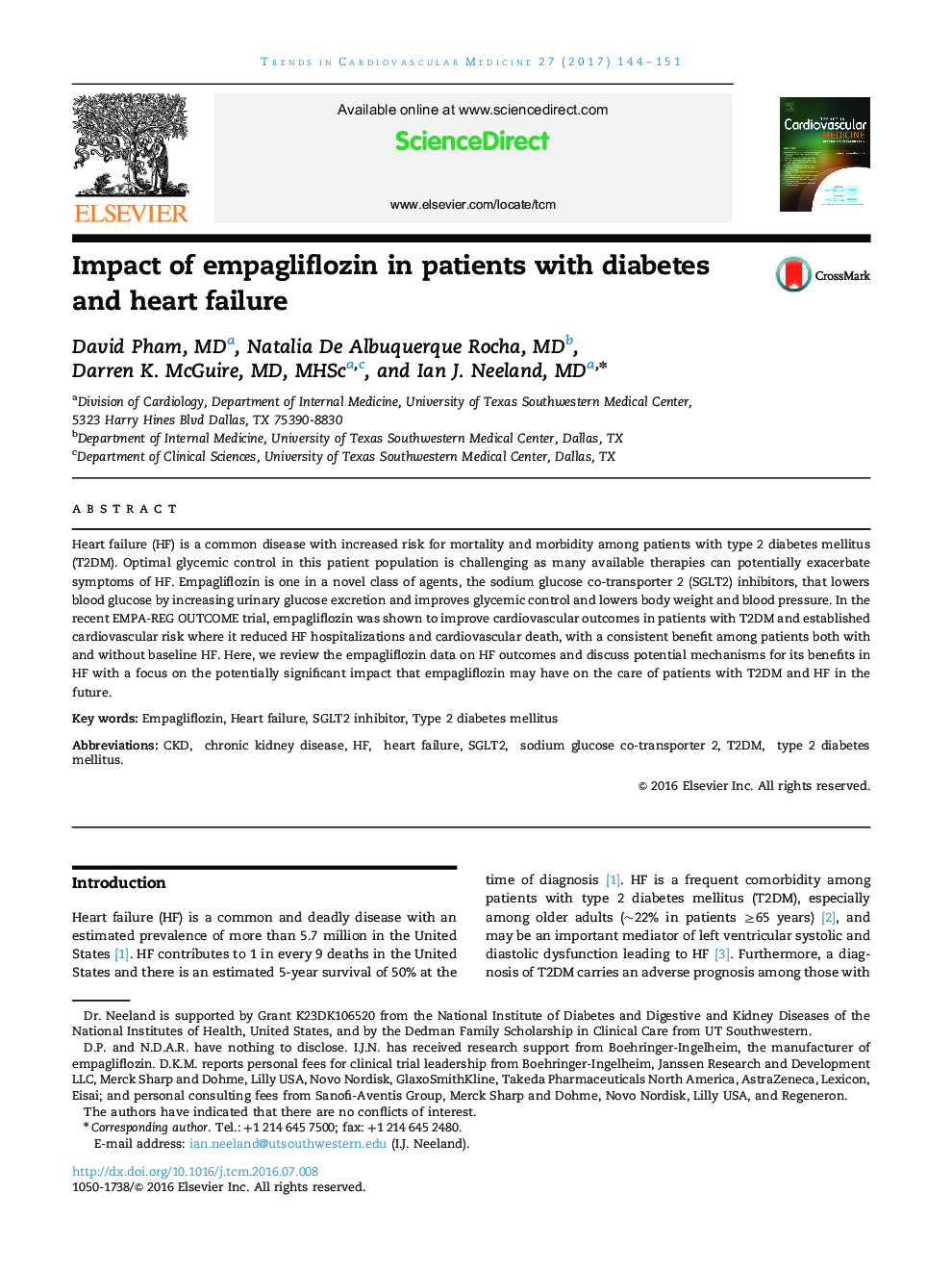| Article ID | Journal | Published Year | Pages | File Type |
|---|---|---|---|---|
| 5622293 | Trends in Cardiovascular Medicine | 2017 | 8 Pages |
Heart failure (HF) is a common disease with increased risk for mortality and morbidity among patients with type 2 diabetes mellitus (T2DM). Optimal glycemic control in this patient population is challenging as many available therapies can potentially exacerbate symptoms of HF. Empagliflozin is one in a novel class of agents, the sodium glucose co-transporter 2 (SGLT2) inhibitors, that lowers blood glucose by increasing urinary glucose excretion and improves glycemic control and lowers body weight and blood pressure. In the recent EMPA-REG OUTCOME trial, empagliflozin was shown to improve cardiovascular outcomes in patients with T2DM and established cardiovascular risk where it reduced HF hospitalizations and cardiovascular death, with a consistent benefit among patients both with and without baseline HF. Here, we review the empagliflozin data on HF outcomes and discuss potential mechanisms for its benefits in HF with a focus on the potentially significant impact that empagliflozin may have on the care of patients with T2DM and HF in the future.
